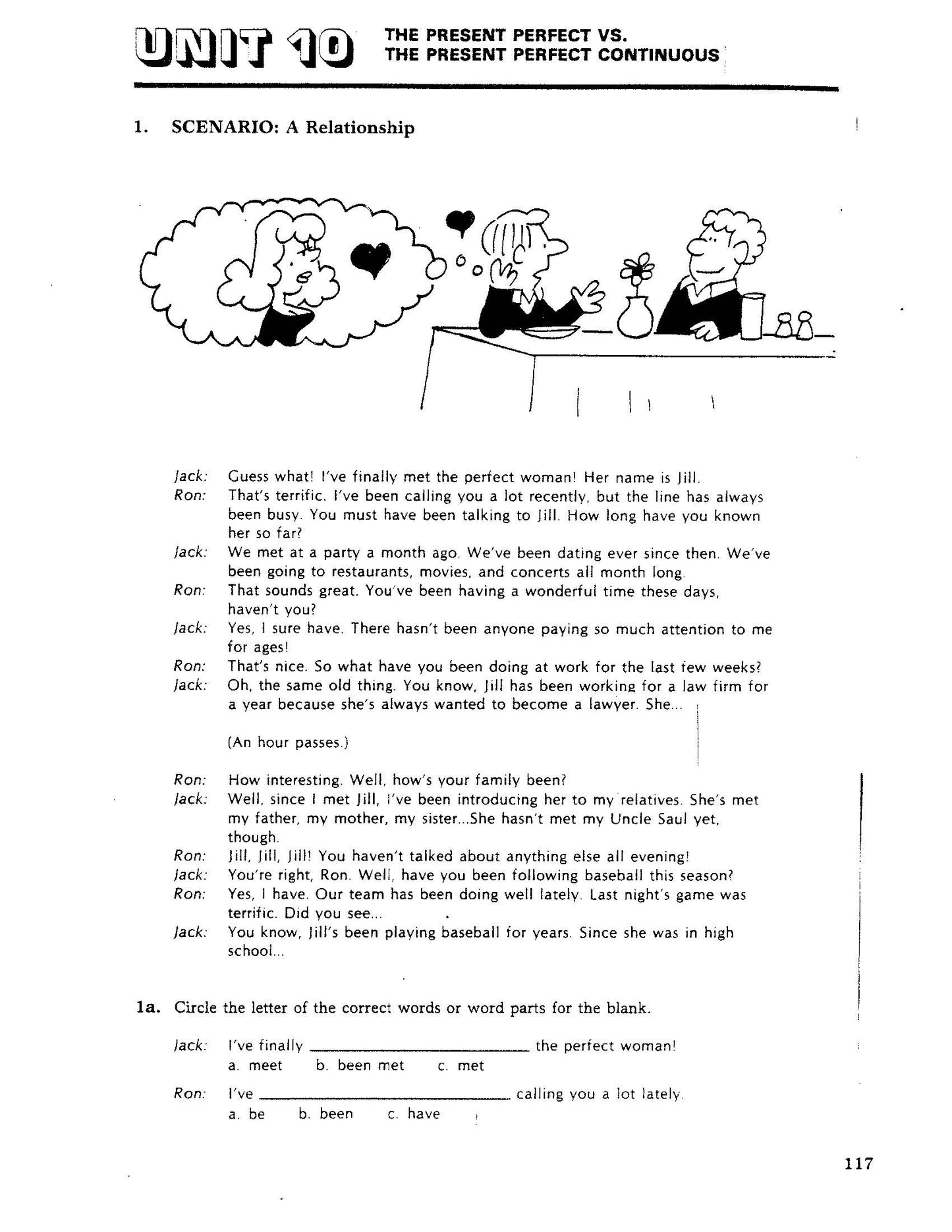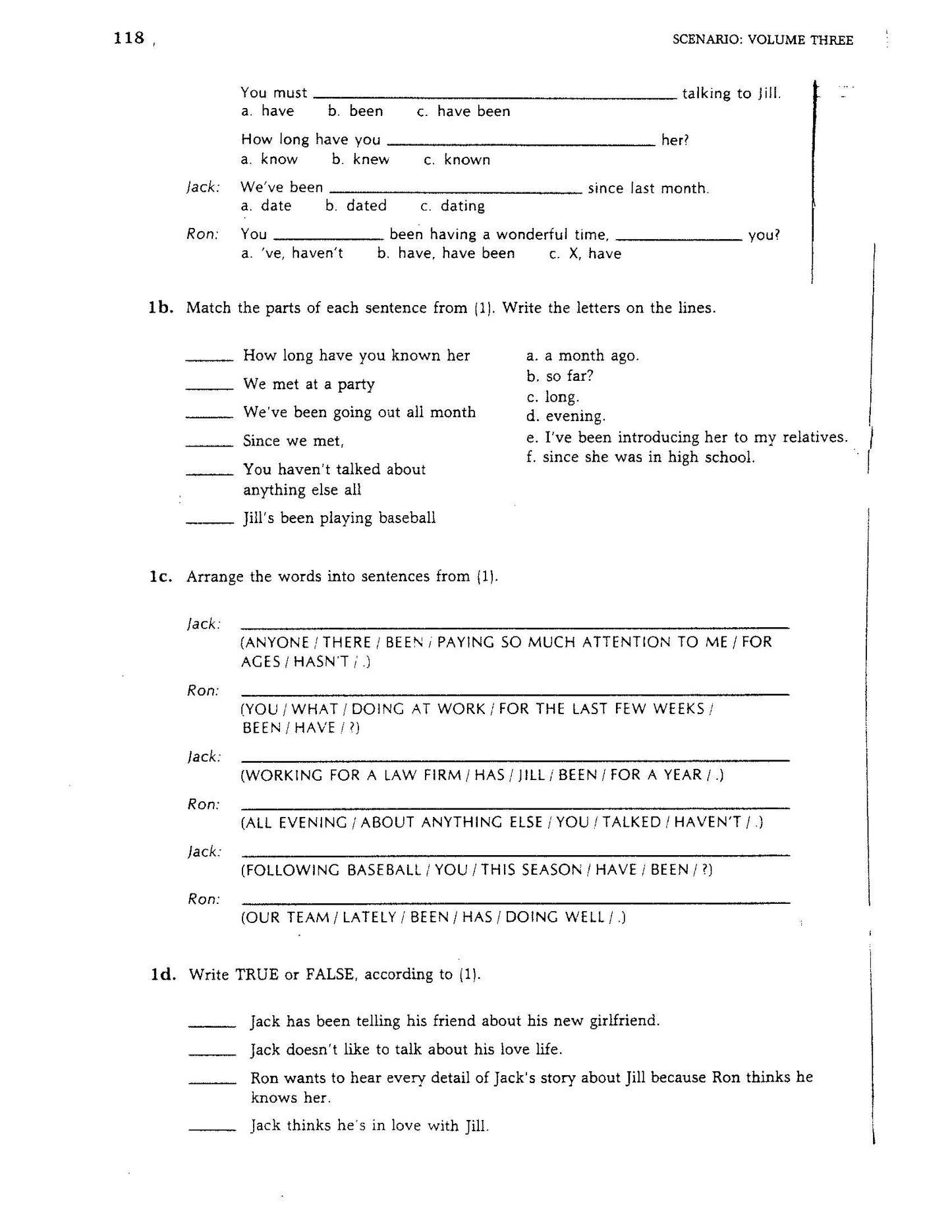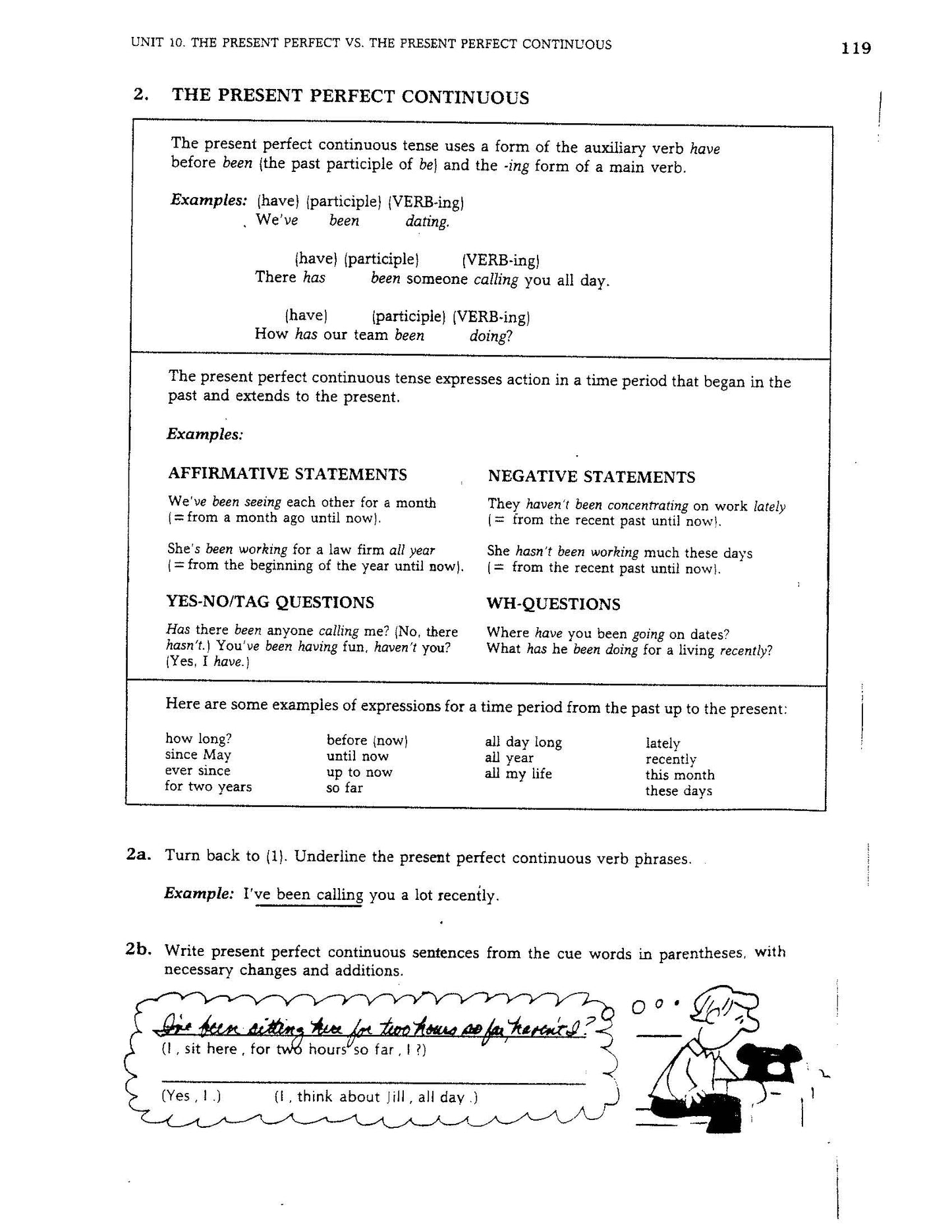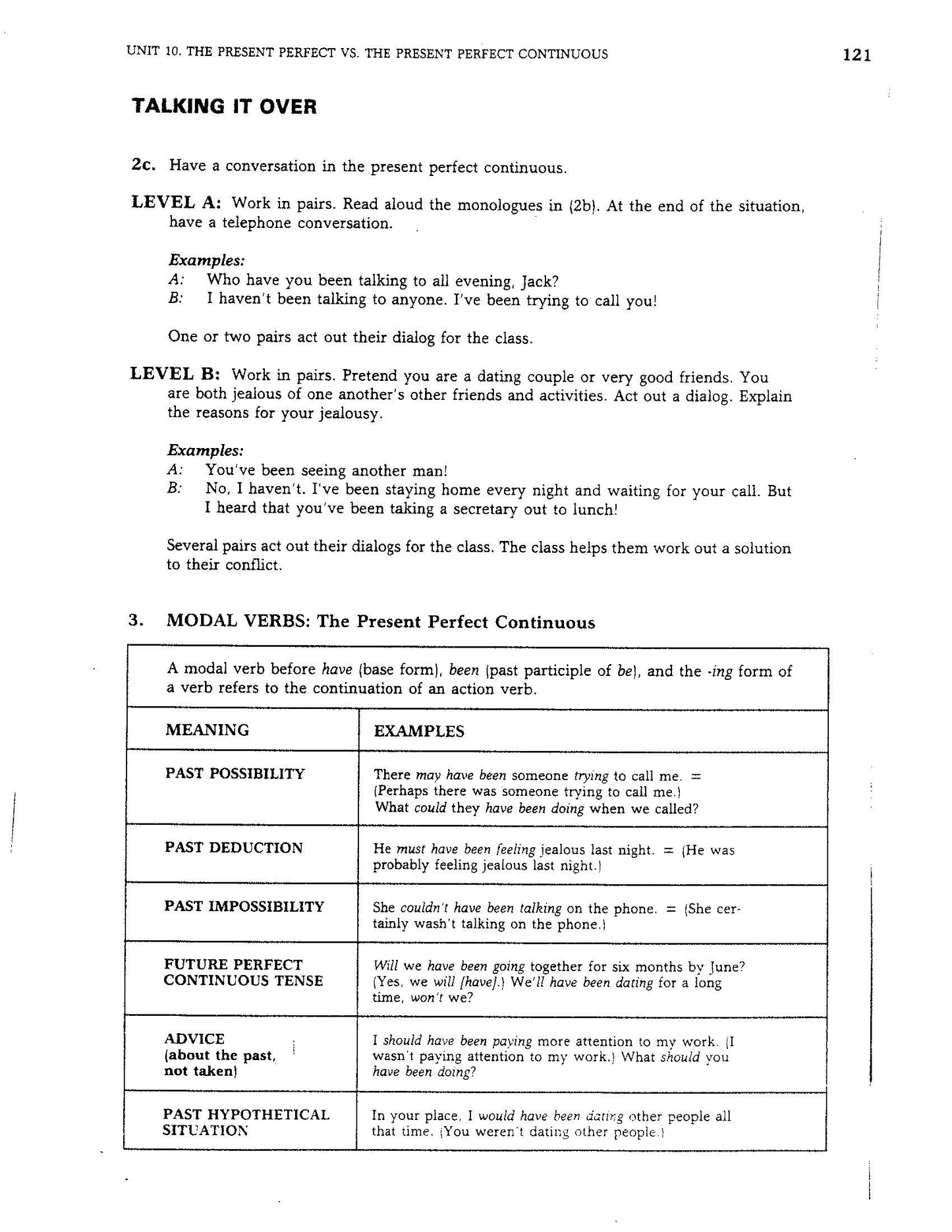1
/
of
4
Work/Life English
D-13.08 Master the Present Perfect (Continuous) for Activity in Past Time Up to the Present, Understand & Use Perfect, Continuous Modals
D-13.08 Master the Present Perfect (Continuous) for Activity in Past Time Up to the Present, Understand & Use Perfect, Continuous Modals
Regular price
$4.00 USD
Regular price
Sale price
$4.00 USD
Unit price
/
per
Unit 10: The Present Perfect vs. the Present Perfect Continuous (“A Relationship”) of the Original Scenario, Volume Three: English Grammar in Context, pages 117-132
17 pages
Who It’s For: Advanced (Self-)Teachers & Helpers Ready to Create Longer Perfect Verb Phrases with Even Subtler, More Sophisticated Implications
Why It’s Useful: Even the “complex” meanings of four-word modal verb phrases ( Modal + have been + VERBing ) aren’t enough to “complete the coverage” of Present Perfect Time, but these old, linear pages give it another try. Examples of all the forms and uses of the Present Perfect (Continuous) appear in their Scenario about “A Relationship.” As before, some of their pedagogy has these headings: The Present Perfect Continuous; Modal Verbs; Activity in the Time Period Up to the Present; Time Expressions for the Present Perfect (Continuous). In this more advanced presentation, moreover, there are also sections on Durative vs. Punctual Verbs and the Present Perfect (Continuous) Tense in Clauses. For even more practice, download and peruse this old-fashioned Unit.
What You’ll Do:
[1] In the page 102 Scenario: notice how the two speakers use Present Perfect (Continuous) Forms & Patterns to talk (too much) about a potential new relationship. Use the examples in the Comprehension, Explanatory, & Practice Exercises—and the interwoven Time Expressions—to review and polish what you already know and can do with verb phrasing in new, personalized contexts.
[2] On page 127, take another look at “Durative vs. Punctual Verbs.” Verbs implying Continuation (have lived, have been working, etc.) can express Activity Up to the Present, often with words like for, since, all. In contrast, verbs of Completion (moved, got [a job], etc.) appear (with already, just, recently, etc.) to indicate Activity in Unspecified Past Time. The distinction may seem subtle, but it’s interesting to explore.
[3] In both full sentences and adverb clauses, it’s satisfying to use Complex (Modal) Verb Phrasing to talk / write about your own and others’ lives and experiences (in past time) up until the present.
Couldn't load pickup availability








